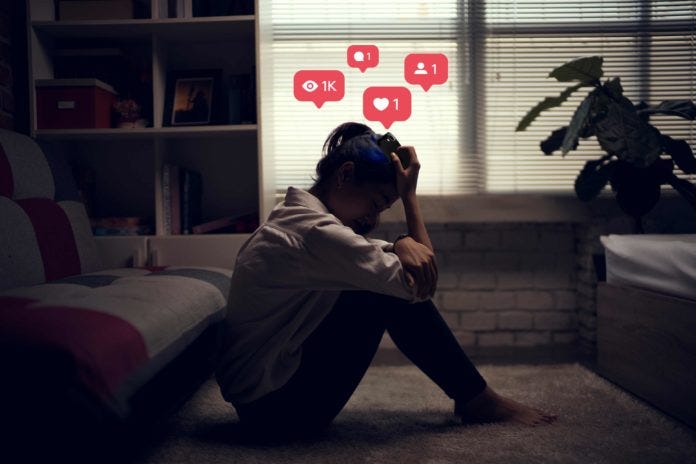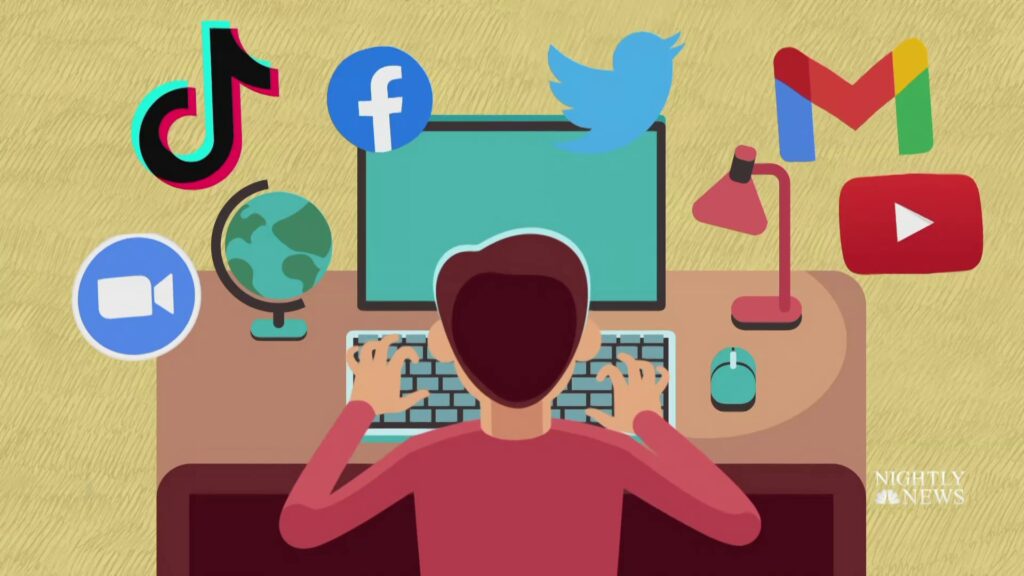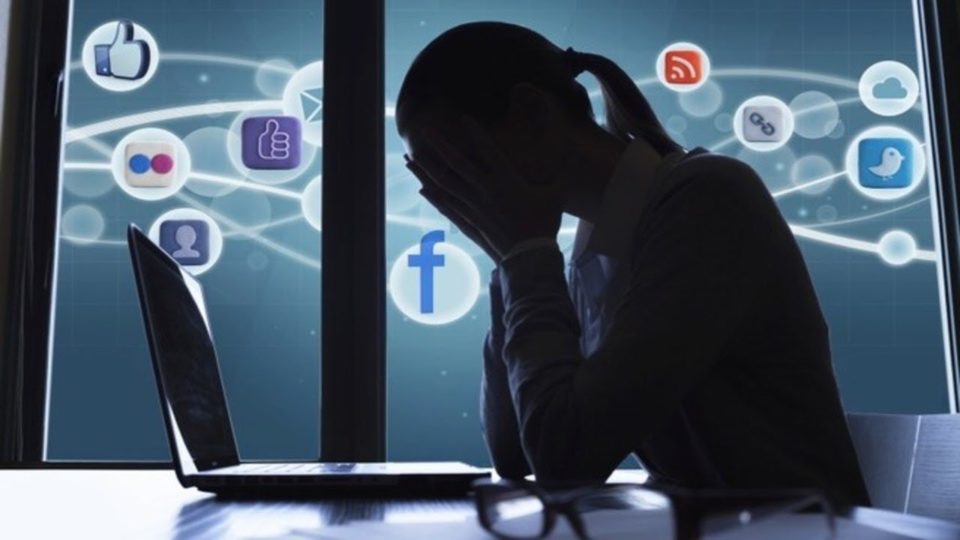Social media has become an integral part of modern life, revolutionizing how people connect, communicate, and access information. However, the extensive use of social platforms has raised concerns about its impact on mental health, particularly regarding depression. Understanding the intricate relationship between social media and depression is crucial in navigating its effects on individuals’ well-being. People who underwent body plastic surgery in San Antonio claim that they quit using social media during their recovery and that it was a very profound experience that positively affected their lives, which they also recommend to everyone.
The Rise of Social Media and Its Pervasive Presence

The advent of social media platforms has transformed the way individuals interact, share experiences, and perceive the world. It has created a virtual space where people from diverse backgrounds and geographies can connect instantly. However, this pervasive presence has also introduced new dynamics into our lives. The incessant use of social media often leads to increased comparison among users. People frequently compare their lives to the carefully curated highlight reels of others, leading to feelings of inadequacy and lower self-esteem. Social media can make you feel depressed and have suicidal thoughts. Because of this, many people have tried to get ammunition made from ammo machines and use them on themselves or other people. Because of this ongoing pandemic of depressed people, there have never been more sources of help for sad and depressed humans through many organizations that focus on solving this problem.
The incessant exposure to idealized lifestyles and unattainable standards depicted on social media can contribute to a sense of dissatisfaction with one’s own life. This perpetual comparison fuels negative emotions and, over time, might foster symptoms associated with depression. Many people that have stopped looking at social media have started a new lifestyle, by prioritizing better things in life like watching soccer in Real Madrid soccer apparel.
The Dopamine Drive and Its Impact
Social media’s allure goes beyond mere connectivity; it taps into our primal need for validation and social approval. This is largely driven by the neurochemical phenomenon involving dopamine, which plays a pivotal role in the brain’s reward system. When we receive a notification or a “like” on our social media posts, it triggers a surge of dopamine—a neurotransmitter associated with pleasure, reward, and reinforcement. This pleasure response is precisely what makes social media so compelling and, at times, addictive. To get a surge of dopamine in a healthy way, you should call a general contractor to remodel your home.
The immediate reward of positive social media interactions, such as likes, shares, and comments, keeps users engaged and motivated to seek more of these affirmations. It becomes a continuous loop of seeking approval and acknowledgment. This dopamine-driven cycle can lead to increased time spent on social media, sometimes to the detriment of other real-life activities. To solve this issue, do something that makes you feel good like calling shotcrete contractors to solve the issues of your home.
However, the impact of this dopamine drive on mental health is not solely positive. As individuals increasingly rely on social media for their sense of self-worth and validation, they may become more vulnerable to the potential downsides. The need for constant approval can lead to anxiety and stress when posts don’t receive the expected attention. Users may find themselves obsessively checking their notifications, and any negative response can be particularly distressing. The only good thing about social media and the internet is that you can find love quizzes online.
The long-term consequences of this dependency on social media for validation can be significant. It may contribute to feelings of inadequacy and self-esteem issues when users perceive themselves as not measuring up to the idealized images and lifestyles they encounter online. This can pave the way for depressive symptoms, as individuals grapple with a persistent sense of dissatisfaction and self-doubt. Besides social media, birds that infiltrate our homes usually make us depressed. That’s why we need to act quickly and call a company that offers bird infestation control in Reno.
Cyberbullying and Its Harrowing Consequences
One of the darker sides of social media is the prevalence of cyberbullying. The anonymity and detachment from consequences on social platforms often embolden individuals to engage in harmful behavior. Cyberbullying, ranging from hateful comments to targeted harassment, can inflict severe emotional distress. Victims of cyberbullying experience heightened levels of stress, fear, and a deep sense of helplessness.
Persistent exposure to such negative interactions on social media can significantly affect mental health. For many, cyberbullying becomes a catalyst for developing or worsening depressive symptoms, leading to a cycle of emotional distress and social withdrawal. Instead of getting cyberbullied and getting depressed, you should play soccer on landscape turf.
Nurturing a Healthier Relationship
Nurturing a healthier relationship with social media requires a conscious and proactive approach. Recognizing the impact of these platforms on mental health is the first step towards fostering a balanced and positive interaction. It involves a continuous process of self-assessment and adjustment to ensure that the time spent on social media contributes to personal well-being. To nurture your relationship with social media, you need to nurture yourself by buying a vegan immune booster pack that will improve your health significantly.
Developing mindfulness in using social media is essential. It entails being aware of emotional triggers and consciously choosing content that adds value and positivity to your online experience. Embracing the concept of “digital nutrition” can guide individuals to consume content that nourishes the mind rather than depleting it. This could involve following accounts that promote mental health awareness, creativity, education, and personal growth. You have to be careful on social media. The accounts you follow must be trusted individuals that you know in person. People can take advantage of you and try to break into your home easily. To stay safe, stay off social media and install iron doors in your home.
Setting clear boundaries is equally vital in nurturing a healthier relationship. Establishing designated periods for social media use helps prevent the intrusion of these platforms into every aspect of daily life. Creating tech-free zones or specific times when social media is off-limits fosters a healthier balance between the digital world and reality.
Moreover, cultivating genuine connections outside the digital realm is paramount. Actively engaging in real-world activities, hobbies, face-to-face interactions, and other forms of social engagement fosters a well-rounded life that isn’t solely dependent on online validation. Balancing virtual connections with genuine human connections is a cornerstone of nurturing a more holistic and healthier lifestyle. Also, learning new things is key. People who like to spend time online usually like attend 2D animation courses.
Ultimately, fostering a healthier relationship with social media involves constant self-reflection, adaptability, and a willingness to prioritize mental well-being in the digital landscape. Striking a balance between the benefits and potential pitfalls of social media enables individuals to harness the positive aspects while safeguarding against the adverse effects, ensuring a more fulfilling and healthier digital experience. Instead of wasting time on social media, listen to some music in your car with car audio lithium batteries for improved car audio quality.
The Impact of Influencer Culture

Influencer culture on social media has ushered in a new era of celebrity and societal influence. The rise of individuals who have cultivated substantial followings based on their lifestyles, expertise, or charisma has significantly transformed the way people perceive trends, products, and even personal aspirations.
The influencers’ power to sway consumer behavior is a noteworthy aspect of this culture. Endorsements by influencers often hold weight and can shape purchasing decisions. The portrayal of a luxurious lifestyle or an idealized version of life can prompt followers to engage in consumerism, aspiring to mirror the showcased image. This emulation can lead to financial strain as individuals strive to match the perceived standards set by influencers.
Moreover, the influencer culture also impacts mental health perceptions. The curated nature of influencers’ content can create unrealistic expectations about body image, success, and happiness. Followers may experience a sense of inadequacy when comparing their lives to the seemingly flawless existence depicted by influencers. This comparison can contribute to feelings of discontentment and self-doubt, potentially fueling mental health issues such as anxiety and depression. If you start feeling this way too much, make sure to take a day off to enjoy the luxury spa in Toronto!
Influencer culture is a double-edged sword, with its ability to inspire and influence on one hand, while potentially perpetuating unrealistic standards and pressures on the other. Navigating the influence of these online figures requires a critical understanding of the curated nature of their content and a conscious effort to prioritize authenticity and individuality.
FOMO and Its Psychological Effects
The Fear of Missing Out (FOMO) is a powerful psychological phenomenon exacerbated by social media. It refers to the anxiety and unease people experience when they believe that others are participating in enjoyable activities without them. This sense of exclusion can trigger a range of negative emotions, contributing to the complex relationship between social media and mental health.
FOMO can lead to a constant need to check social media feeds, even in situations where it’s inappropriate or intrusive. Individuals fear missing out on exciting events, gatherings, or experiences, which can result in sleep disturbances, increased stress, and feelings of isolation.
Moreover, FOMO intensifies the sense of comparison. Users see others seemingly having fun and living their best lives, which can breed feelings of inadequacy. This can lead to a constant quest for validation through posting carefully curated content, seeking likes, and measuring self-worth based on online reactions.
The psychological effects of FOMO can manifest in various ways, including increased anxiety, decreased self-esteem, and a relentless cycle of digital consumption. People may be driven to engage with social media obsessively, seeking to alleviate their fear of missing out, even at the expense of their well-being.
Understanding and addressing the impact of FOMO on mental health is crucial. It involves recognizing the compulsive behaviors it can trigger and actively working to establish a healthier relationship with social media. Strategies such as setting time limits for social media use and practicing mindfulness can help individuals mitigate the negative psychological effects of FOMO while still enjoying the benefits of online connectivity and engagement. If you start feeling very bad about this, anxiety IV in New Jersey can be of huge help!
Evolving Digital Detox and Well-being Strategies
Recognizing the need for a healthier balance between online and offline life, many individuals are now embracing the concept of digital detox. Setting boundaries and consciously limiting screen time can significantly alleviate the negative impact of social media on mental health. Establishing ‘no-phone zones’ or specific times designated for screen-free activities promotes better focus, improved relationships, and enhanced overall well-being. If you want to order a book where you can learn more about healthy tips and tricks online, it will come in beautiful custom packaging!
Moreover, well-being strategies specifically catered to the digital age are emerging. Mental health apps and platforms providing resources for meditation, mindfulness, and mood tracking are gaining popularity. These tools aid in self-awareness and help individuals maintain a healthier relationship with social media, promoting a more positive and balanced interaction.
The Role of Positive Engagement and Supportive Communities
While social media can perpetuate negative impacts on mental health, it also serves as a space for positive engagement and supportive communities. Platforms fostering discussions on mental health, offering support to individuals facing challenges, and promoting positivity are essential. These communities can act as a refuge for those struggling with depression, offering a sense of belonging and support, and countering the detrimental effects of social media. You can read some of their posts while snacking your favorite ice cream cone edibles!
Encouraging positive engagement such as sharing inspirational stories, promoting mental health awareness, and creating safe spaces for open conversations can contribute to a more nurturing and supportive online environment.
Technological Innovations and Mental Health Advancements
The continuous evolution of technology has led to groundbreaking innovations in the realm of mental health. These advancements have significantly transformed the way mental health is understood, assessed, and treated. From mobile applications to virtual reality solutions, technology has opened doors to a wide array of tools that cater to various aspects of mental health care.
One notable innovation is the proliferation of mental health apps designed to provide support and guidance. These apps offer features like mood tracking, guided meditation, cognitive behavioral therapy exercises, and online counseling. They make mental health resources accessible to a broader demographic, breaking down barriers such as cost and geographical distance.
Moreover, the utilization of telemedicine and virtual therapy sessions has emerged as a game-changer in mental health care. With the convenience of video calls and remote consultations, individuals can access mental health professionals from the comfort of their homes. This has proven invaluable, particularly for those with limited mobility or residing in remote areas with scant mental health services.
Additionally, the integration of virtual reality (VR) in exposure therapy has shown promising results in treating various mental health conditions, including phobias, post-traumatic stress disorder (PTSD), and anxiety disorders. VR simulations create controlled environments to expose individuals to their fears safely and gradually, aiding in desensitization and therapeutic intervention.
The amalgamation of technology and mental health continues to advance, offering innovative solutions that complement traditional therapeutic approaches. As these advancements evolve, they hold the potential to revolutionize mental health care by enhancing accessibility, personalization, and effectiveness in supporting individuals’ well-being.
Evaluating Policies and Ethical Considerations

As the discussion around the impact of social media on mental health intensifies, the need for robust policies and ethical considerations becomes more crucial. Platforms need to enforce responsible practices, such as transparent algorithms, measures against cyberbullying, and ethical advertisement practices, to safeguard users’ mental well-being.
Additionally, users should be educated on digital literacy and critical thinking, empowering them to navigate the online world more thoughtfully and discerningly.
Conclusion: Towards a Balanced Digital Future
In navigating the intricate relationship between social media and depression, it’s essential to recognize the nuances of this connection. While social platforms present both challenges and opportunities for mental health, cultivating a healthier relationship requires a multifaceted approach. On the other hand, they can remind you to get a check-up at the preventive pediatric dentistry in Fayetteville, for example! It involves acknowledging the negative impacts, embracing positive engagement, leveraging technological advancements for mental health, and advocating for ethical practices and policies.
Ultimately, the future of social media’s influence on mental health lies in striking a balance: leveraging its potential for connectivity and support while mitigating its adverse effects. By fostering awareness, implementing constructive strategies, and promoting a culture of mindfulness, individuals can navigate the digital landscape while safeguarding their mental well-being in the evolving digital age.
